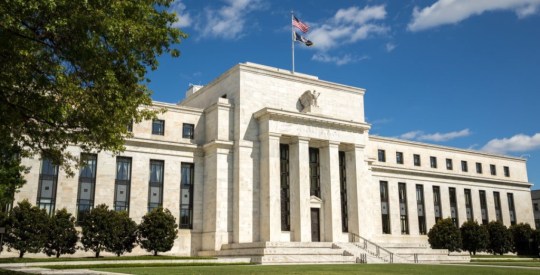The Federal Reserve‘s rule governing how mortgage loan officers are paid is delayed until next week, giving the appellate court time to review lawsuits seeking to overturn the rule. Lawyers add they are confident the rule can be overturned. The National Association of Mortgage Brokers and the National Association of Independent Housing Professionals both sued the Fed in the United States District Court for the District of Columbia in March in an effort to keep the rule from taking effect. “The rule prohibits mortgage brokers from paying their loan originators commissions from fees paid by the consumer, which could inflict harm to small business mortgage brokers, their loan officers and their entire staff if enacted,” NAMB said. The Community of Mortgage Banking Project and the Community of Mortgage Banking Research Fund filed a brief last week in support of the suits. “The rule, unlike any known regulation of an entire lawful industry, micro-mandates the terms of employment of individual loan originators employed by mortgage bankers,” the groups said in the brief. But U.S. District Court Judge Beryl Howell put a stay on the rule this week. NAMB President Michael D’Alonzo told HousingWire Friday that the organization will have until Tuesday to respond and that he is confident they can repeal the rule. “We feel from the very start that we have strong arguments and that we have the right information in place to be successful,” D’Alonzo said. A source familiar with the matter said because of the stay issued this week, lawyers are scrambling with complicated compliance issues. Some initially thought the postponement announcement was an April fool’s prank, he said. “The bottom line is the Fed has until Monday to supply a response, then NAMB has to respond to the Fed’s response by Tuesday. Then the Court of Appeals will rule whether or not the new LOS comp rule will go forward. Lawyers are mildly optimistic that the plaintiffs will prevail,” the source said. Under the final rule, announced in August, a loan originator is prohibited from receiving compensation based on the interest rate or other loan terms. The rule was required under the Dodd-Frank Act, and was meant to crackdown on the practice of paying originators more when a borrower accepted a higher interest rate than the lender required – known as the yield spread premium. The rule also ends of the practice of originators receiving payments directly from the borrower and the lender simultaneously. And it prohibits originators from “steering” a borrower into a loan that nets them a higher pay. “The new rule seeks to ensure that consumers who agree to pay the originator directly do not also pay the originator indirectly through a higher interest rate, thereby paying more in total compensation than they realize,” the Fed said when the rule was announced. But Mike Anderson, the director of government affairs at NAMB, said already on Friday fees are going up. “We’re very confident we’ll get this turned around,” Anderson said. “Judge Howell has already agreed that the consumer will experience irreparable harm, not just the mortgage brokers. Fees are going up. The prince for consumers will go up especially for those in lower-income communities, it will get more expensive.” Paul Anastos, president of home loan lender Mortgage Master, said the new regulation “badly misses” but that his company along with the industry will have to adjust. “While the government may have had the best intentions, I truly believe the new regulations will ultimately hurt the consumer by driving up prices,” Anastos said. “We do our best every day to make sure we continue to provide our customers with the most competitive rates while compensating our people fairly. These regulations will make it more difficult to do that. That said, we recently finalized a plan to meet the new regulations and have rolled it out to our loan officers.” But the Fed said that, indeed, by reducing the complexity for how originators are paid, borrowers can more easily shop loans from broker to broker in order to get the best deal. “The rule will preserve consumer choice by ensuring that consumers can choose from loan options that include the loan with the lowest rate and the loan with the least amount of points and origination fees, rather than the loans that maximize the originator’s compensation,” the Fed said. The Dodd-Frank Act charged regulators with writing hundreds of new rules, many pertaining directly to the still-recovering mortgage industry. The latest rule that will meet industry and trade group headwind is the risk retention rule and its exemption the qualified residential mortgage announced this week. Anastos said with all the new rues it has been difficult steering his business through compliance. Some of the rules, he said are quite vague and leave a lot of room for interpretation. But, he said, it has pushed his business back to the basics of lending. “That said, we are honestly sticking to basic fundamentals,” Anastos said. “Our philosophy is simple, we want to provide the best rates on the street and pay our people fairly. When any new regulations come out, you follow the requirements of the law, but you make sure you don’t change your culture or your philosophy.” Write to Jon Prior. Follow him on Twitter @JonAPrior.
Loan officer compensation ruling delayed
Most Popular Articles
Latest Articles
Powell makes it clear: No rate cuts anytime soon
Powell made statements that indicate there will be no rate cuts anytime soon because the economy and the labor market are too strong.



